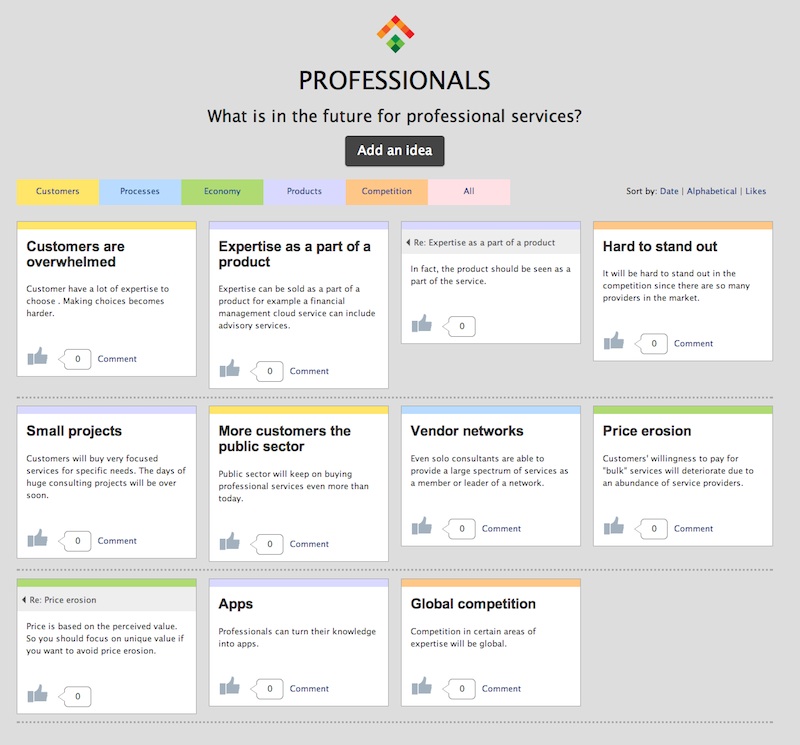Over the years, I have facilitated a fair number of management workshops. Whenever the attendees have had a chance to prepare, the results have always been better than when they come unprepared. Online tools allow the collaborative exchange of ideas before the participants meet in person. You can set all kinds of pre-tasks before a workshop. One strategy is to assign different topics for each attendee to prepare. Another approach is to present one or more questions that each participant should answer, in writing, before the workshop. The third method is to have the attendees vote on a list of alternatives.
Whatever the preparatory task, it is advisable that the attendees can share their thoughts publicly within the workshop team. This way they can build on the ideas of others. Furthermore, this will make them familiar with the workshop topic well in advance, which saves time and makes the gathering more productive.
Tools for online collaboration
The simplest form of pre-workshop collaboration is by email. In the early days of the internet, companies and interest groups used email lists for this task. Email is easy and simple, but it has many shortcomings. If the group is large and the attendees are active, there will be a significant amount of email traffic. Email is not anonymous, which can be a showstopper in some cases. Finally, it is difficult to get an overview of the ideas that are scattered among separate email messages.
Online discussion forums, virtual meeting rooms and whiteboards – to mention a few – are clearly better than email for pre-workshop collaboration. Social media sites also provide services for collaboration, but require that all the attendees are signed up to the particular service.
Idea Wall
I have used, and also developed, many tools for online collaboration. One of the earliest was software that made it easy to compose, deliver, and report on web forms. In 2012, our company developed Idea Market. We targeted it particularly at organizations that need a structured method for project suggestions.
Our latest service is Idea Wall. This is a simple tool for composing “walls” with a single question, e.g.: “Where should we excel in 2020?” Every wall has a unique URL, and the wall can have an access code. The workshop facilitator sends the URL to the attendees via email. The facilitator can choose if the wall has categories for ideas, and if the participants can “like” or comment on ideas that others have posted on the wall.
Idea Wall users post their ideas to the wall anonymously. This offers every participant the same opportunity to be heard, which is not always easy in a workshop setting. It also removes the social pressure to please the boss. 
Conclusions
Experience has shown that you can get a lot more value out of workshops if you extend them with online services. The service should be as simple as possible so that everybody can use it, whether on a desktop, laptop or mobile device. p.s. If you are interested in using Idea Wall for online collaboration, please contact me via LinkedIn.
View the original article and our Inspiration here


Leave a Reply